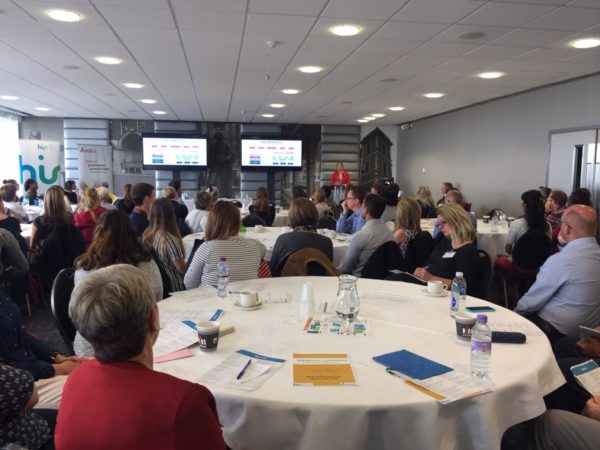Hundreds of Londoner’s have pulse check after Mayor Sadiq Khan urges #knowyourpulse
With 60,000 undiagnosed with the most common type of irregular heartbeat Atrial Fibrillation (AF) that can lead to a stroke, it’s important to #knowyourpulse.
The mayor’s message was backed by NHS England Medical Director Sir Bruce Keogh who issued a video message that can be viewed here urging people to #knowyourpulse. This campaign was backed up by the three London Academic Health Science Networks who ran free drop-in pulse check’s across the capital.
A simple, 30 second pulse rhythm check – either performed manually or using one of a range of new devices – can identify AF so that treatment can be provided.
The call comes after the Mayor had a test himself for Global AF Aware Week (20-26 November). The Mayor’s message can be viewed here.
At least 9,000 people were directly alerted to the campaign through Facebook and Twitter and the video messages have been viewed more than 1,000 times.
Over 150,0000 Londoners are affected by AF and of these an estimated 60,000 remain undiagnosed. Nationally, as the most common type of irregular heartbeat, AF is responsible for approximately 20% of all strokes. Stroke survivors must live with the disabling consequences and treating the condition costs the NHS across England over £2.2 billion each year.
This year’s Global AF Aware Week message was ‘Identifying the Undiagnosed Person with AF’. Londoners are being encouraged to spread the word about irregular heartbeats and urge friends and family – particularly those aged over 65 – to check their pulse and see a GP if it is irregular.
Pulse checks can be done manually (a British Heart Foundation video and guide shows how here) or through technology, with irregular rhythms investigated further by healthcare professionals.
The Mayor of London, Sadiq Khan, said:
“More than 150,0000 Londoners have the most common type of irregular heartbeat, which is called Atrial Fibrillation or AF, and are at higher risk of a stroke. Not everyone with AF has symptoms and a simple pulse rhythm check could save their life.
“I’m urging Londoners to have a free, 30-second pulse check this week during international AF Awareness Week. You can do this at one of the many awareness events happening across the capital this week, or ask your doctor or nurse.”
Professor Gary Ford, Stroke Physician and Chair of the AHSN Network Atrial Fibrillation Group, said:
“More than 60,000 Londoners are unaware they have Atrial Fibrillation which is responsible for 1 in 5 strokes. We have highly effective treatments that reduce the risk of stroke in people with AF.
“During Global AF Aware Week I am urging everyone, but particularly those over 65 to have their pulse rhythms checked. This simple check could prevent a stroke, which can have a devastating impact on their lives.
“I fully support the Mayor of London in his call for Londoners to have a simple check so that we can prevent strokes and ultimately, save lives and prevent long term disability.”
